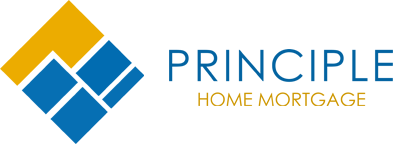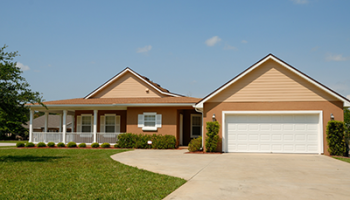Williamsport Mortgage Comparison Guide
Williamsport Mortgage Comparison Guide
Buying a home is a significant financial decision—for many people, it’s the most substantial financial decision of their lives. Because of the high cost of a home, most buyers can’t afford a cash purchase. If you’re like them, you’ll need to obtain a mortgage to finance the purchase and associated costs. Mortgages are a special kind of loan under the terms of which a financier, such as a bank, credit union, or other institution, lends you a sum of money, at an interest rate determined by the market and your credit worthiness, to purchase a home; in exchange, the home itself serves as the loan’s collateral in the event you are unable to repay the loan.
Mortgages are typically issued for 30-year or 15-year terms: monthly payments are higher for 15-year mortgages, but they end up costing less in interest and fees. (Many people opt for 30-year mortgages but pay more than their monthly amount, resulting in savings in interest.) It’s also possible to get loans for 10-year, 20-year, or 25-year terms, though these are less common. There are fixed rate mortgages (in which the interest rate will not change unless the loan is refinanced) and adjustable-rate, or variable-rate, mortgages (in which the interest rate changes based on changes in a relevant index).
The idea behind a mortgage is straightforward, but the different kinds of mortgages, what they provide and require, and who can qualify for them can be a bit confusing. The following explains four major types of mortgage products, which are conventional mortgages and the three main government-backed mortgages: FHA loans, USDA loans, and VA loans.
Conventional Mortgage Loans
The most common types of mortgages are conventional mortgage loans. These are issued by a bank, credit union, or other financial institution to enable the borrower to buy a primary home, investment property, or second home. Borrowers of conventional mortgages typically have a good credit history, stable employment and income, and a downpayment of at least 3%. Conventional mortgage loans are not insured by the federal government and are either “conforming” loans (that is, the amount loaned does not exceed the Federal Housing Finance Agency’s maximum loan limits) or “non-conforming” (they exceed those limits). Jumbo mortgages are the most common non-conforming mortgage loans.
Borrowers who can’t meet a 20% down payment when the loan is issued will need to pay private mortgage insurance (PMI) on each monthly payment, but once you attain 20% equity you can have that additional fee canceled. This is an advantage over most government-backed loans, on which PMI cannot be canceled.
Conventional mortgage loans tend to have slightly higher interest rates than other specialized loans, but their overall costs tend to be lower. They require a minimum FICO score of 620 and a debt-to-income ratio of no more than 45% to 50%.
FHA Mortgage Loans
The Federal Housing Administration (FHA) was formed in 1934 to help economically disadvantaged Americans become homeowners by insuring their mortgages. Many first-time homebuyers and buyers with mediocre credit find FHA-backed loans an ideal solution for financing their purchase (FHA loans can be used for primary residences only).
To obtain an FHA-insured mortgage, you must obtain your financing from an approved lender and meet several conditions. You must have a FICO score of 580 or higher (to qualify for a 3.5% downpayment) or 500 to 579 (to qualify for a 10% downpayment) and a debt-to-income ratio under 31%. You must also have at least two years of employment history and income. The home you are buying must adhere to certain Housing and Urban Development guidelines and be appraised by an FHA appraiser.
While FHA-insured mortgages are available in both 15- and 30-year terms, unlike conventional mortgages they are only available as fixed rate loans. Lenders who issue FHA-backed mortgages cannot exceed 5% of the loan amount in closing costs and are allowed to pay up to 6% of the closing costs themselves. For loans issued on less than a 10% downpayment, the borrower has to pay an upfront insurance premium of 1.75% of the loan amount and an annual insurance premium of between 0.45% and 1.05%.
USDA Mortgage Loans
The U. S. Department of Agriculture (USDA) provides mortgages designed to encourage home-buying in rural communities. Most borrowers of USDA mortgages are first-time homebuyers or homebuyers who aren’t able to obtain a conventional mortgage.
USDA mortgages are only available for primary residence properties located in rural areas or areas adjacent to rural areas but not also in an urban area. The area must have a population under 20,000 people, not be within a metropolitan statistical area, and be generally underserved by traditional mortgage-lenders for low and middle-income borrowers.
To qualify, borrowers must be U. S. citizens or permanent residents in good standing with all federal agencies with a credit score over 640 and a history of on-time bill payments. Because USDA mortgages are intended to help low- and moderate-income homebuyers, they are only available to borrowers whose household income falls under a specific threshold (this threshold varies based on household size and the area in which the home is located).
The primary benefits of USDA loans are that they do not require a downpayment and they have low, fixed rates. They do, however, require payment of two guarantee fees (on top of other typical closing cost fees, though the USDA does allow the seller to pay these fees on the buyer’s behalf): 1% of the loan amount must be paid up front and 0.35% is paid annually. Often the up-front amount can be rolled into the total mortgage loan.
VA Mortgage Loans
For members of the armed services, the U. S. Department of Veterans Affairs (VA) offers a specialized program that will guarantee mortgages if they meet certain other qualifications - the VA mortgage loan. This program is available to eligible active duty service members, veterans who met their minimum service requirements or were honorably discharged, and certain spouses of armed service members and veterans. To qualify, you must have served for a certain amount of time (181 consecutive days during peace or 90 consecutive days during war, or six years in the Selective Guard or National Guard).
Participants in the program file for a VA Certificate of Eligibility and, upon receiving the certificate, will be given an “entitlement” from the VA, which is the amount of a mortgage that the VA agrees to guarantee; typically, lenders will then agree to loan up to 200% of that entitlement to the borrower. The value of your entitlement is based on several factors, but especially on the geographic area in which you are buying your home.
VA-backed loans do not require a downpayment and, because of the entitlement (which is usually around 25% of the home’s cost), they come with no PMI. There is, however, an upfront funding fee of between 1.4% and 3.6%; the precise amount of the fee is determined by the amount of the loan, your downpayment amount, and whether you are a first-time homebuyer or a subsequent home buyer. In addition, like all mortgages, they come with a number of required closing cost fees (though these can also be rolled into the mortgage loan itself). VA-backed mortgage loans can only be used to purchase, build, or refinance a primary residence. Like any mortgage, borrowers using a VA-backed loan must be able to prove sufficient income to make their payments, have a manageable debt load, and (generally) have a FICO score over 620.
Receiving a VA-backed loan also provides benefits if you find yourself unable to make your payments. Recipients of VA-backed loans who are struggling to stay in their home can turn to the VA for assistance negotiating with lenders or developing a loan modification plan.
Mortgages are typically issued for 30-year or 15-year terms: monthly payments are higher for 15-year mortgages, but they end up costing less in interest and fees. (Many people opt for 30-year mortgages but pay more than their monthly amount, resulting in savings in interest.) It’s also possible to get loans for 10-year, 20-year, or 25-year terms, though these are less common. There are fixed rate mortgages (in which the interest rate will not change unless the loan is refinanced) and adjustable-rate, or variable-rate, mortgages (in which the interest rate changes based on changes in a relevant index).
The idea behind a mortgage is straightforward, but the different kinds of mortgages, what they provide and require, and who can qualify for them can be a bit confusing. The following explains four major types of mortgage products, which are conventional mortgages and the three main government-backed mortgages: FHA loans, USDA loans, and VA loans.
Conventional Mortgage Loans
The most common types of mortgages are conventional mortgage loans. These are issued by a bank, credit union, or other financial institution to enable the borrower to buy a primary home, investment property, or second home. Borrowers of conventional mortgages typically have a good credit history, stable employment and income, and a downpayment of at least 3%. Conventional mortgage loans are not insured by the federal government and are either “conforming” loans (that is, the amount loaned does not exceed the Federal Housing Finance Agency’s maximum loan limits) or “non-conforming” (they exceed those limits). Jumbo mortgages are the most common non-conforming mortgage loans.
Borrowers who can’t meet a 20% down payment when the loan is issued will need to pay private mortgage insurance (PMI) on each monthly payment, but once you attain 20% equity you can have that additional fee canceled. This is an advantage over most government-backed loans, on which PMI cannot be canceled.
Conventional mortgage loans tend to have slightly higher interest rates than other specialized loans, but their overall costs tend to be lower. They require a minimum FICO score of 620 and a debt-to-income ratio of no more than 45% to 50%.
FHA Mortgage Loans
The Federal Housing Administration (FHA) was formed in 1934 to help economically disadvantaged Americans become homeowners by insuring their mortgages. Many first-time homebuyers and buyers with mediocre credit find FHA-backed loans an ideal solution for financing their purchase (FHA loans can be used for primary residences only).
To obtain an FHA-insured mortgage, you must obtain your financing from an approved lender and meet several conditions. You must have a FICO score of 580 or higher (to qualify for a 3.5% downpayment) or 500 to 579 (to qualify for a 10% downpayment) and a debt-to-income ratio under 31%. You must also have at least two years of employment history and income. The home you are buying must adhere to certain Housing and Urban Development guidelines and be appraised by an FHA appraiser.
While FHA-insured mortgages are available in both 15- and 30-year terms, unlike conventional mortgages they are only available as fixed rate loans. Lenders who issue FHA-backed mortgages cannot exceed 5% of the loan amount in closing costs and are allowed to pay up to 6% of the closing costs themselves. For loans issued on less than a 10% downpayment, the borrower has to pay an upfront insurance premium of 1.75% of the loan amount and an annual insurance premium of between 0.45% and 1.05%.
USDA Mortgage Loans
The U. S. Department of Agriculture (USDA) provides mortgages designed to encourage home-buying in rural communities. Most borrowers of USDA mortgages are first-time homebuyers or homebuyers who aren’t able to obtain a conventional mortgage.
USDA mortgages are only available for primary residence properties located in rural areas or areas adjacent to rural areas but not also in an urban area. The area must have a population under 20,000 people, not be within a metropolitan statistical area, and be generally underserved by traditional mortgage-lenders for low and middle-income borrowers.
To qualify, borrowers must be U. S. citizens or permanent residents in good standing with all federal agencies with a credit score over 640 and a history of on-time bill payments. Because USDA mortgages are intended to help low- and moderate-income homebuyers, they are only available to borrowers whose household income falls under a specific threshold (this threshold varies based on household size and the area in which the home is located).
The primary benefits of USDA loans are that they do not require a downpayment and they have low, fixed rates. They do, however, require payment of two guarantee fees (on top of other typical closing cost fees, though the USDA does allow the seller to pay these fees on the buyer’s behalf): 1% of the loan amount must be paid up front and 0.35% is paid annually. Often the up-front amount can be rolled into the total mortgage loan.
VA Mortgage Loans
For members of the armed services, the U. S. Department of Veterans Affairs (VA) offers a specialized program that will guarantee mortgages if they meet certain other qualifications - the VA mortgage loan. This program is available to eligible active duty service members, veterans who met their minimum service requirements or were honorably discharged, and certain spouses of armed service members and veterans. To qualify, you must have served for a certain amount of time (181 consecutive days during peace or 90 consecutive days during war, or six years in the Selective Guard or National Guard).
Participants in the program file for a VA Certificate of Eligibility and, upon receiving the certificate, will be given an “entitlement” from the VA, which is the amount of a mortgage that the VA agrees to guarantee; typically, lenders will then agree to loan up to 200% of that entitlement to the borrower. The value of your entitlement is based on several factors, but especially on the geographic area in which you are buying your home.
VA-backed loans do not require a downpayment and, because of the entitlement (which is usually around 25% of the home’s cost), they come with no PMI. There is, however, an upfront funding fee of between 1.4% and 3.6%; the precise amount of the fee is determined by the amount of the loan, your downpayment amount, and whether you are a first-time homebuyer or a subsequent home buyer. In addition, like all mortgages, they come with a number of required closing cost fees (though these can also be rolled into the mortgage loan itself). VA-backed mortgage loans can only be used to purchase, build, or refinance a primary residence. Like any mortgage, borrowers using a VA-backed loan must be able to prove sufficient income to make their payments, have a manageable debt load, and (generally) have a FICO score over 620.
Receiving a VA-backed loan also provides benefits if you find yourself unable to make your payments. Recipients of VA-backed loans who are struggling to stay in their home can turn to the VA for assistance negotiating with lenders or developing a loan modification plan.
Principle Home Mortgage is Williamsport's mortgage broker. They specialize in helping their clients find the best mortgages for them. Contact them today to learn more.
1
Sep
VA Home Loans In Williamsport: A Primer
If you're looking for a Williamsport VA home loan, this article will give you a solid foundation. VA home loans - in Williamsport or anywhere else in Pennsylvania - are one of the best ways to obtain a home mortgage.
10
Aug
Step-By-Step Guide to Being a First Time Home Buyer
As a first time home buyer, you'll have a lot of questions. Check out our Williamsport First Time Home Buyer Guide for answers.
22
Jun
First Time Williamsport Home Buyer Mortgage Tips: The Inside Scoop
If you're considering buying a home in Williamsport - or anywhere else in Pennsylvania, you're guaranteed to learn something new in this informative guide.




